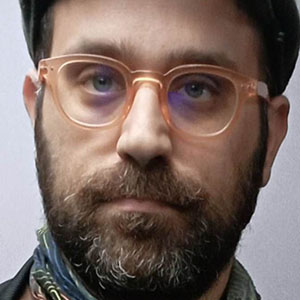
George Kesisoglou
Country: Greece
Organization: private practice
Short CV
George Kesisoglou (Ph.D) is in private practice in Athens, Greece, as a psychologist and systemic family therapist. He has conducted postdoctoral qualitative research on group supervision processes and has published on precarity, critical discursive psychology, family therapy and affective practices. He collaborates as an Family Therapy Instructor with the Systemic Institute of Cyprus and Entropia Institute in Thessaloniki. The past ten years, he has taught courses in Social Psychology, Qualitative Research and Counseling Psychology at public and private universities. He is a graduate and doctor of the Department of Psychology of the University of Athens, a member of the Systemic Society of Northern Greece (SEVE). He is interested in critical, multicultural and social constructionist approaches to therapy. In recent years, he coordinates the open hybrid seminar on History and Philosophy of Systemic Thinking “Government, Systems, Roots”, as well as editing the open-access Anti-Archive “Constellations of Concepts”.
Round-table discussion
(together with: Anna Apergi-Konstantinidi & Parvy Palmou & Chloe Kolyri & Pavlos Zarogiannis)
Title: Gender, identity, and sexuality as multiplicities: heteroglossia and polyphony
It seems that, in recent years, what Aristotle once formulated is increasingly accepted, namely that “it seems impossible for all things to be one” and that ultimately the “one… is many”. This notion seems almost self-evident, if one considers, even for a moment, the diversity of all living beings, humans included. It is a notion that could lead to a horizontal distribution, mutual recognition, and equal acceptance of all living beings.
And yet: the one may be many, but the many were sacrificed, and continue to be sacrificed, in the name of the one. Because what has prevailed and what has been imposed for centuries is categorization, grouping, and homogenization, as well as the vertical hierarchy of homogenized categories and groups, something that led, and still leads, to prohibitions, marginalization, exclusions, and conditional inclusions with painful, traumatic, and sometimes tragic consequences for those who belong to the arbitrarily and pejoratively called “minority” groups.
Maybe now is the time to remember Aristotle’s saying about the multiplicity of beings and to reflect on their heteroglossia and polyphony. And, of course, it is also a time for us to contemplate the depth and implications of this saying at all levels of our psychotherapeutic practice. And this not only in relation to our patients, but also to us as therapists.

